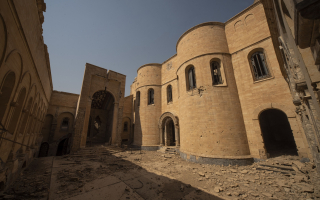Addressing current global concerns and needs:
Whether the threat is natural or human-induced, catastrophic (fast) or cumulative (slow), proactive solutions must be formulated to reduce the vulnerability of built heritage and recognize the relationship between built heritage conservation, resilience and sustainable development.
Significantly, the UN’s Sustainable Development Goals (SDGs) refer to culture as part of the international development agenda for the first time, acknowledging its safeguarding and promotion as an end in itself. At the same time, culture directly contributes to many of the SDGs — safe and sustainable cities, decent work and economic growth, reduced inequalities, the environment, promoting gender equality and peaceful and inclusive societies.
ICCROM has developed a prospective course on Sustainability and Built Heritage to centre built heritage conservation and management within a sustainable development framework. Its objectives are as follows:
- Strengthen the links between immovable heritage and moveable and intangible heritage to provide a holistic understanding of significance that can guide decision making in conservation and management.
- Connect current global concerns to specific challenges and opportunities, along with the practical requirements for conservation and management of built heritage at a site level.
- Effectively respond to the need to protect the values of living heritage sites, while ensuring their continuity and change.
- Integrate heritage into sustainable development to counter the general perception of conservation as anti-development.
- Develop practical tools and guidelines to periodically maintain and monitor the impact of changing environmental conditions on built heritage, and to rethink the materials and techniques used in built heritage conservation to consider social, economic, and environmental sustainability.
- Develop innovative planning strategies for mainstreaming heritage within urban development processes to effectively respond to rapid physical, social and economic transformation in cities.
- Develop tools and strategies for holistic, sustainable, and resilient recovery of built heritage following disasters and conflicts.

